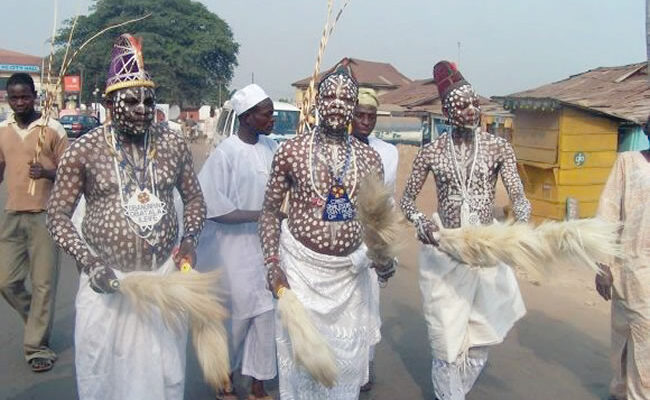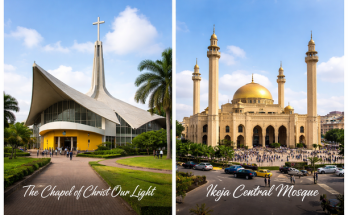By Jimmy
The Oro cultural festival is important in Yorubaland it is always used to appease the gods and ask for peace and security in the land.
This age-long tradition seems to have defied civilization and attempts to have what many refer to as its “anti-human activities” curtailed. It worships the god/orisha, Orò, the Yoruba deity of bullroarers and justice.
It is an annual traditional festival that is patriarchal, as it is only celebrated by male descendants, who are paternal natives of the specific location where the particular event is taking place. Oro is always done when a king dies.
For an Oro cultural festival to commence, a monarch will declare three days of Oro rite between the hours of 12:00 a.m. and 5:00 a.m., usually from Wednesday to Saturday. The monarch will issue a memo to residents of the community informing them of a curfew to perform the Oro festival.
The most important thing about Oro is that it is forbidden for women and non-initiated (Ogberi) to participate. Moreover, if a non-indigenous person is in the community, it is forbidden to go out during the festival, whether they be male or female.
SEE: Wrong National Anthem: Top 10 football facts you might not know
Also, if a male from a particular town visits another town, but unknown to him, an Oro cultural festival is underway; if he is already an initiate from where he is coming from, he won’t be attacked or harmed. All he has to do is answer some questions called ‘Aro,’ which only the initiates understand.
Oro is said to be clothed in a robe with shells and wears a white wooden mask with blood smeared on the lips. The deity is steeped in mysteries; it mostly has male descendants who are paternal natives participating in secretive rites.
It is taboo for females to set eyes on the deity. Based on oral history, death is a fatal consequence that awaits any woman who sees the instruments that produce the voice of the Oro or observes the priest performing the rituals.
Though the life of a man could be spared if caught outside, he must hide as the deity and its worshippers pass through.
According to a non-profit making organization, Ondo Connect New Era, in an article entitled ‘Understanding the Antiquated Yoruba Oro Festival,’ the word Oro means fierceness, tempest or provocation, and the deity appears to have personified executive power!
Oro is supposed to haunt the forest in the neighborhood of towns and he makes his approach known by a strange whirring, roaring noise. As soon as this is heard, all women must shut themselves up in their houses and refrain from looking outside.








